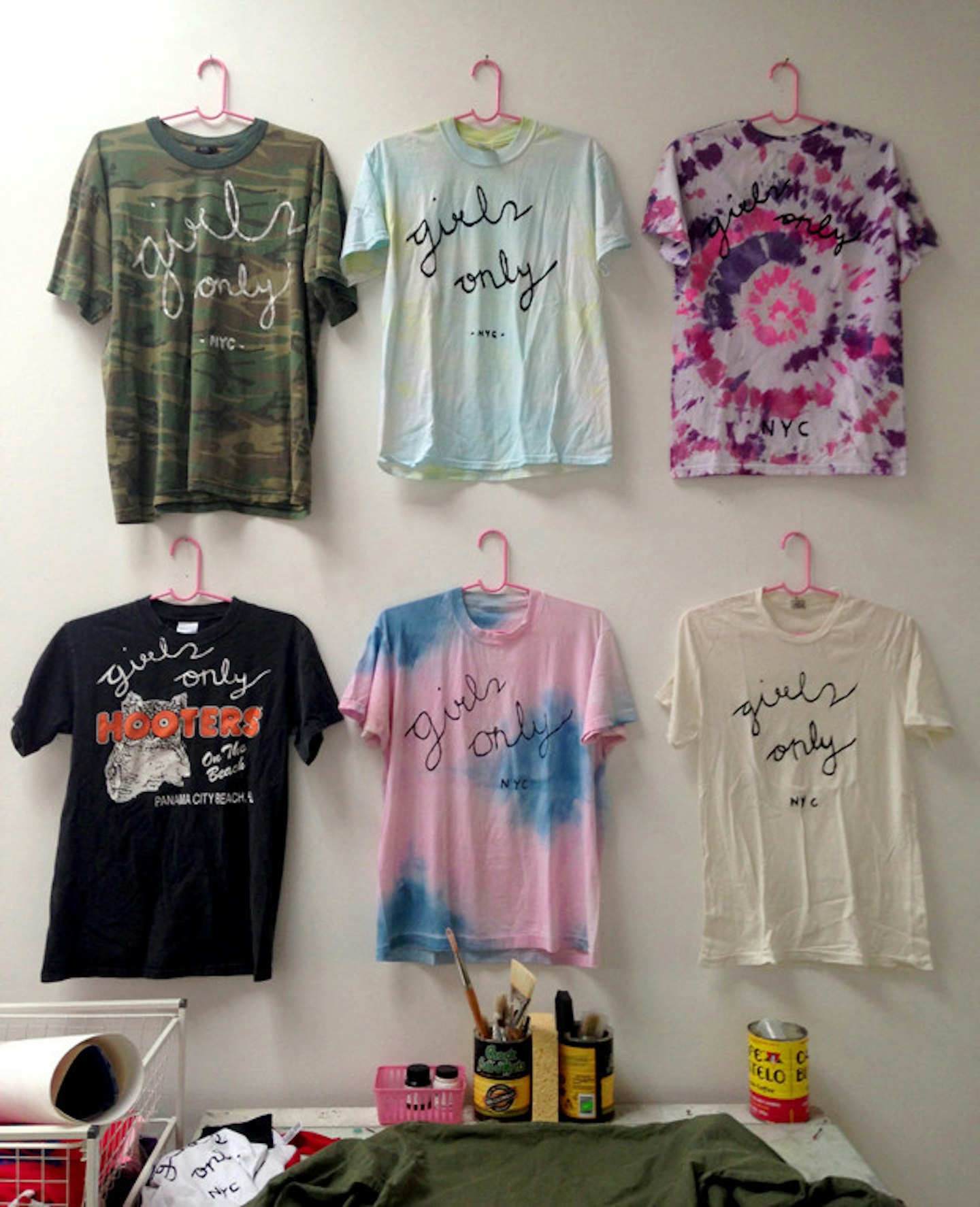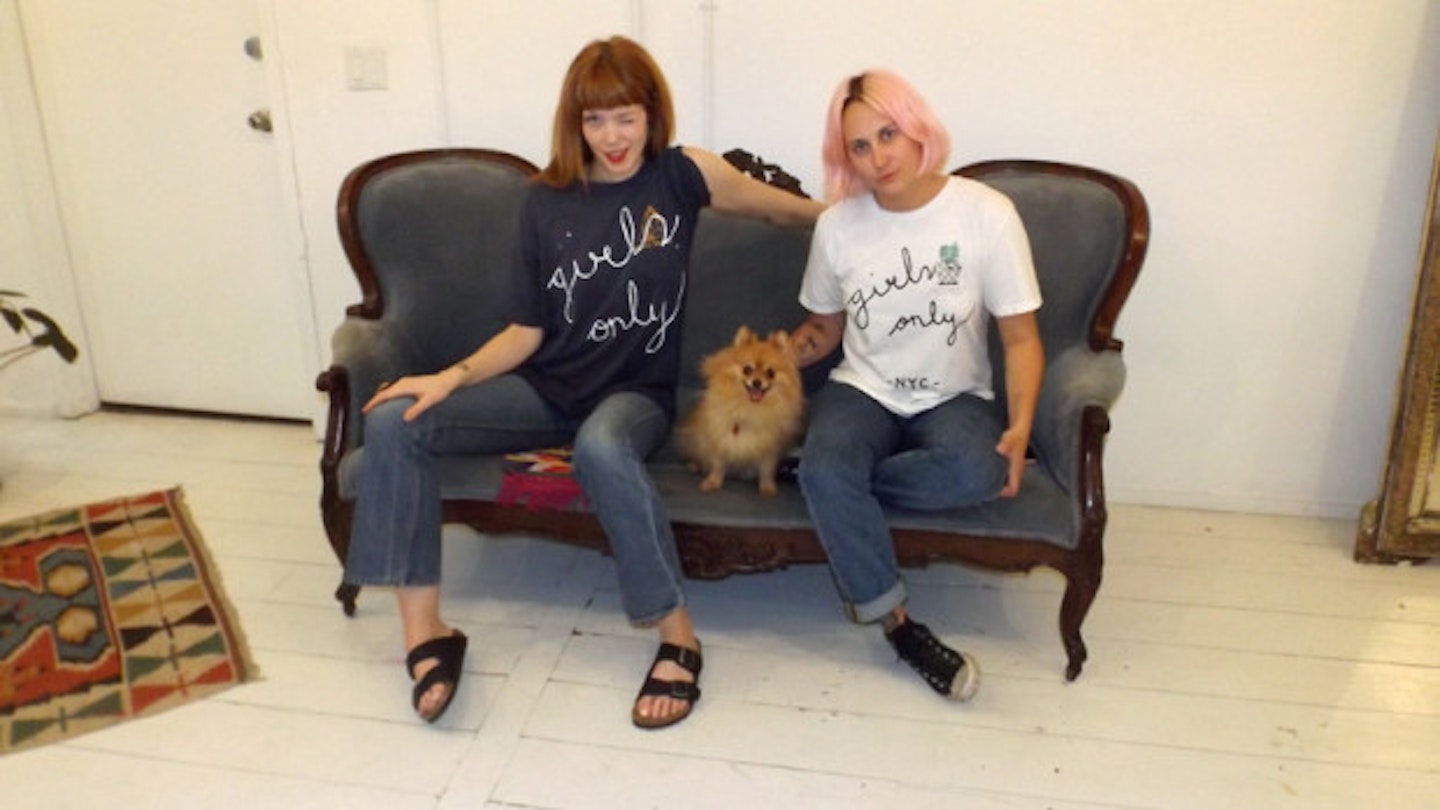Today Sophia Amoruso’s hotly anticipated memoire #GIRLBOSS hits the UK shelves. The werk biography of the 30-year-old Nasty Gal CEO (a vast US e-tailer stuffed to the brim with sassy Valley Girl garms ‘for taste-makers and risk-takers’), it is a pink fade-to-edge paperback. On the cover stands an almost comically cartoonish Sophia, wind-machined hair flicking like a modern-day superhero who doesn’t look like she’s taking it all very seriously. But Nasty Gal’s $100 million turnover says otherwise.
The fact that #GIRLBOSS comes out today could not be more prescient. It arrives in the midst of yet another storm of controversy surrounding the ‘girl’ tag – the argument being that some see the term as infantilising and restrictive.
Earlier this week, a BBC programme about the Commonwealth Games, which originally aired in April, was repeated on TV – this time with a glaring omission. In the original screening, when 31-year-old BBC presenter Mark Beaumont is floored by 19-year-old judo champion Cynthia Rahming from The Bahamas, he jokes, ‘I am not sure I can live that down, being beaten by a 19-year-old girl.’
Despite the relative inoffensiveness of the words – a man in his thirties expecting to have superior body strength to a girl in her teens isn’t really that shocking – in the repeat of the programme, the BBC edited out the word ‘girl’. Mark went onto his Twitter, baffled, to state: ‘Maybe the editor thought it was sexist – it wasn’t.’ Cynthia, too, has confirmed that she found it neither sexist nor offensive.
When girl-gate recently reared its head to Sophia Amoruso, via a tweet chastising her for the inclusion of ‘girl’ in the book’s title – hardly a surprise, let’s be honest, given the name of her company – she took no prisoners. ‘How's #BROADBOSS?’ she riffed back, ‘or would you prefer #MATRONBOSS?’ Her point being that these are just semantics.
‘I mean, come on,’ she told The New York Times' The Cut, earlier this week. ‘I don’t like it when an old man says, [creepy voice] “Let’s invite the girls to dinner” but I think it’s okay to call girls girls.’ Pause. ‘And I think it’s okay to call girls bossy,’ she adds as a sneaky afterthought, a dig at another exhaustive conversation surrounding Sheryl Sandberg’s ‘Ban Bossy’ campaign.
![]](https://images.bauerhosting.com/legacy/lifestyle-legacy/6f/42f97/7294b/27735/85c9c/45f7e/d3164/]_620x861.jpg?auto=format&w=1440&q=80)
In a poll run by The Debrief earlier this week, 70 per cent of readers stated that they did not find being called a ‘girl’ offensive (we‘d quite like to meet the three per cent who would prefer to be called ‘lady’ – more power to you, sista). Further proof of its topicality came just a few weeks ago when the editor of The Debrief, Hattie Brett, took part in a conversation on Radio 4’s Today programme, debating whether being called a ‘girl’ was holding, well, girls, back. ‘Blaming semantics for the massive issue we still have about female advancement in the workplace is entirely missing the point’ Hattie tweeted afterwards.
But what about in fashion – an industry where cushy terms of endearment are bandied around as much as the term ‘girl’ is. PR firm KCD’s executive vice president, Rachna Shah, recently told Vanity Fair that the context is key, particularly when a fashion designer is considering their client. ‘Designing for a girl, versus a woman, versus a lady, the distinction creates a certain image,’ she explains, with different designers targeting a different female (for example, Joseph Altuzarra of cult label, Altuzarra, always thinks of his client as a woman.) Of course, a girl cannot be a girl forever – we can’t say for certain, but an 80-years-old ‘girl’ seems excessive.
On the side of girlhood, it’s not just ‘fashion’s new phenom’ (as Sophia was dubbed by Forbes two years ago) fighting for girl power version 2.0. New-York-based art curator, Antonia Marsh, weaves the term ‘girl’ through the aesthetics of everything that she does, such as the residency space, Girls Only NYC, that she runs for collective of female artists in Bushwick, New York (they’ll be exhibiting in a gallery in Chinatown this summer.)
From 1 June, she will also be running a T-shirt customisation service where for the princely sum of zero pence, you can get a ‘Girls Only’ slogan on your tee – the curlicue of which is inspired by [’90s feminist punk rock movement] Riot Grrrl’s Kathleen Hannah who sang, ‘We are turning cursive letters into knives’ – embroidered across your favourite T-shirt.

‘I identify as a girl totally,’ says Antonia. ‘It makes me feel strong. It used to be a derogatory term – girliness was wrongly associated with naivety, ignorance and weakness and it was assumed that “girls” had less to say than “women”. The Spice Girls were onto something and I hope it’s not just ’90s nostalgia making us reclaim the tag and own our girlhood…. Girls are fucking badass!’
And now you can get a fucking badass T-shirt, too. From next week, Antonia will start her free global PO Box T-shirt service (she merely requires a PayPal contribution to cover return postage – and homespun tokens of your own are always appreciated), where you send in your T-shirt and she will customise it with the ‘Girls Only’ branding. Having seen them via ’Gram on Bad Girlfriend frontwoman and The Reformation’s Brianna Lance and an in-the-making tee for Victoria’s secret supermodel Camille Rowe (NYC-dwelling friends of Antonia’s), we’re pretty hooked.
The concept is as heart-warming as it is creatively neat. ‘It’s a punk art project, not a formal business venture,’ says Antonia, brushing aside the project’s lack of financial gain. ‘I’m sure it won’t continue forever, but I’m just reminding people that a personal touch can have a big effect. Plus, I want to show through the project that you can have pink hair and wear an embroidered T-shirt – like I do – and still care about serious issues like rape and sexual assault.’
Whether you identify as a woman, or a lady, or a girl, if Girls Only isn’t an inspiration to feel empowered in both your girlhood and through your clothes, then we don’t know what is.
Follow Pandora on Twitter @pinsykes
Picture: Rex
This article originally appeared on The Debrief.
